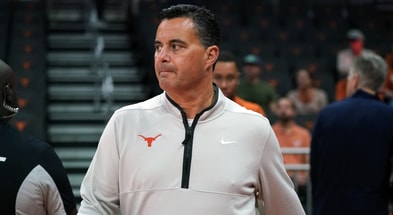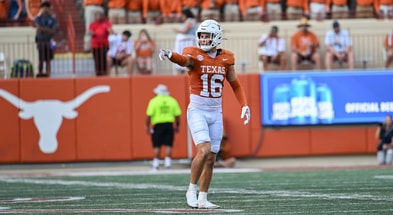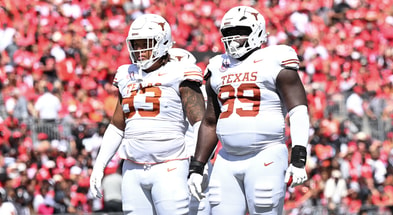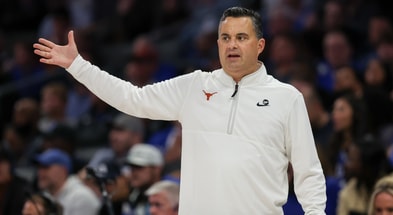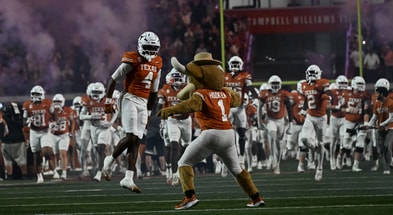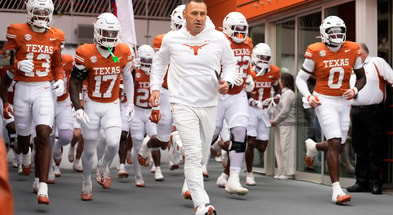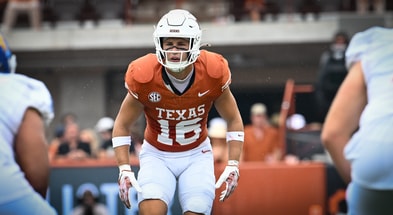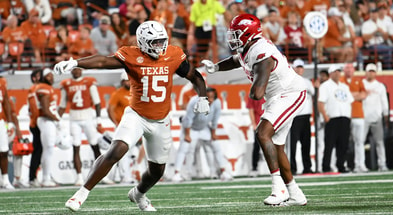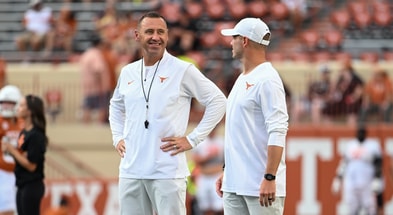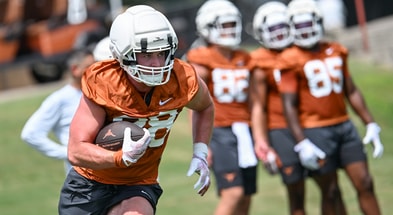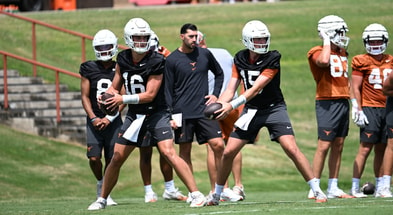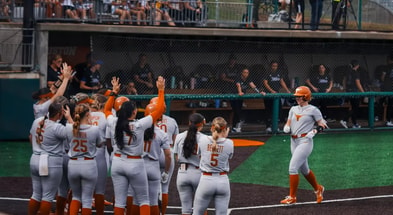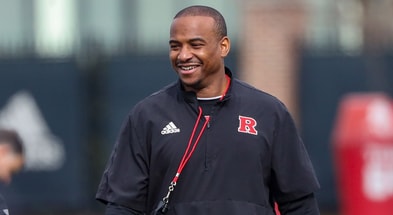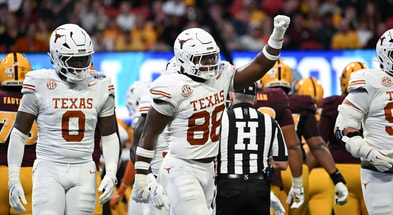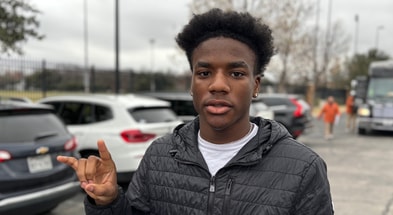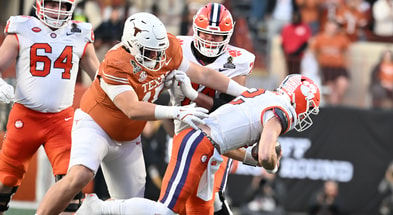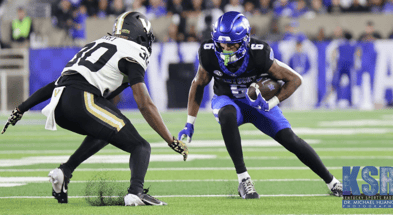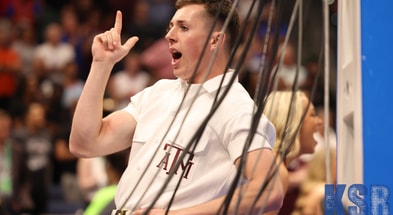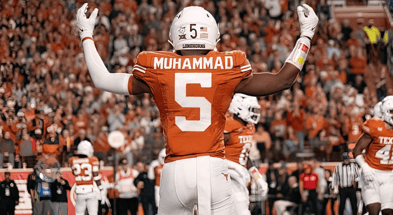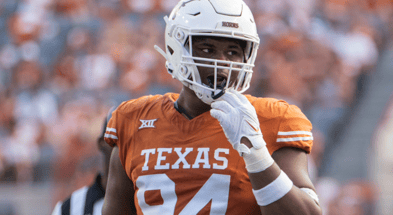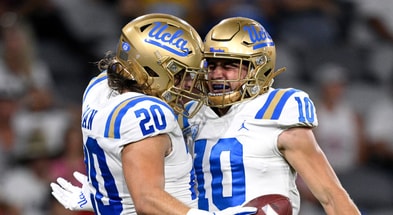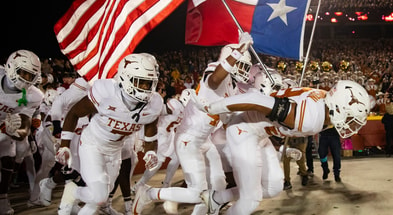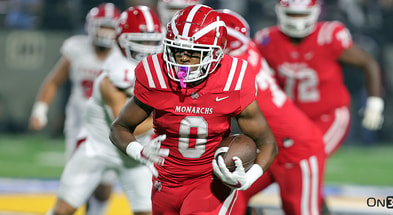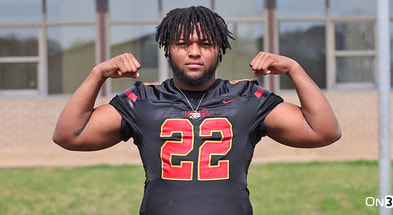2022 Alamo Bowl: Washington Huskies Preview
This is the companion piece to my Early Peek Preview written 3 weeks ago. That still holds up and nothing has changed with Washington, as no Husky players will opt out of the Alamo Bowl. The Longhorns will be without two elite running backs and linebacker DeMarvion Overshown who was designed in a lab to play against this offense running down screens, outside zone and the Husky QB when he breaks the pocket.
[Get Inside Texas Plus until the start of the 2023 season for $10!]
The idea of this preview is to provide a little context for Washington’s true level of offensive excellence and defensive vulnerability.
First disclaimer: all of the matchups and statistics are out of the window if WannaBeThere ain’t there. Teams that want to play in bowls typically win the bowl, often pulling off significant upsets. This bowl season has already seen that happen and there will be more to follow. I’d reckon both teams want to be there and Texas has a de facto home field advantage, but if there’s a team that wants to be there more than the other, it’s probably the Washington Huskies. No slight against Texas, but a first year coach and transfer QB breathed life into a program in shambles and they were the surprise team of the Pac 12, if not college football. No one is opting out and they’re fired up to be there. Seeing a 4 loss Texas favored in the game has likely been pointed out to them as well.
Still, Texas has good reason to come out and kick ass in front of a de facto home crowd and show that they’re more than the 4 loss team that advanced statistics are in love with.
It’s important to contextualize Husky success. Washington went 10-2, losing only two close games, but their slate of opponents wasn’t exactly murderer’s row. They avoided Utah and USC and they had about as favorable a run through the Pac 12 possible, defeating Oregon with a banged up Bo Nix. I don’t subscribe to the idea that the Pac 12 is “overrated” necessarily — it’s just that the bottom half of the league is utterly miserable. It’s hard to gauge whether the “good teams” are really good or just giants amongst dwarves.
Washington Offense
You can’t talk about Washington success without discussing their voluminous offense, but let’s set the proper tone before piling too many bouquets at their feet. Here are the FEI advanced rankings for the defenses Washington faced:
Portland State N/A (FCS school that went 4-7)
Kent State 111
Colorado 119
Michigan St 69
UCLA 81
Arizona 121
Arizona St 116
Oregon 52
Oregon St 16
Wash St 32
Stanford 90
Cal 63
They played a half dozen awful defenses and only two with something more than a pulse. In summary, their average opponent had a 79th ranked Defensive FEI, roughly the equivalent of playing Tulsa or Temple every week. Portland State – a bad FCS team that was not factored into that average – would be difficult to quantify, but ranking their defense 130th in FBS would likely be a kindness.
Interestingly, the two best defenses Washington faced had two very different results. Oregon State did a terrific job against the Huskies in a losing effort (24-21) frustrating Penix into uncharacteristic inefficiency for most of the contest but they were ultimately hamstrung by a miserable Beaver passing offense and their horrific QB play.
Washington State’s 32nd ranked defense was blown out 51-33 in the Apple Cup in no small part because an undermanned secondary with zero depth ran a game plan that offered no challenge to anything Washington did conceptually. I don’t know what Cougar prep looked like, but it likely involved a lot of drinking and spitballing like: “Hey, let’s make Penix show he can hit the deep ball! I personally don’t buy it and I don’t think their receivers are actually THAT fast!” Washington threw for 485 as the Huskies accumulated over 700 yards of offense. They were an incredible 11/13 on 3rd downs.
Uh, don’t do anything Washington State did. Watch Oregon State and Arizona State film.
The Huskies have the best passing game in the country by raw statistics and the Indiana transfer Penix certainly has been remarkable avoiding negative plays (low sacks and interceptions) while creating massive upside. Washington will throw the ball 45-50 times a game without any regrets and you can guarantee that 7-10 of them will be bona fide deep shots. No team in college football is more stubborn throwing it over the top and Penix has a great arm and touch. The scariest part is that many of those shots are pure timing based on recognizing defensive coverages. They’re throwing to a spot and the chances at a sack are zero.
Top 10
- 1Breaking
Heisman Trophy
Best player in CFB crowned
- 2Trending
Heisman Voting
Final vote totals released
- 3
Michigan Athletic Dept.
Full investigation commissioned
- 4Hot
Kenny Dillingham
Nearing extension with ASU
- 5
Michigan Coach Search
Three names to watch
Get the Daily On3 Newsletter in your inbox every morning
By clicking "Subscribe to Newsletter", I agree to On3's Privacy Notice, Terms, and use of my personal information described therein.
Texas must show some diversity of coverages without blowing any. Similarly, because the Washington Husky receiver talent is so well distributed, single high coverage draws a throw to their backside receiver like clockwork. There’s no Husky to double. The pressure on the free safety to play well is intense. The Horns have to trust corners and nickels like Barron, Watts, Jamison and Brooks to disrupt early as the Huskies will take easy money 8-18 yard throws all day if allowed to do so.
I’ve already covered the Washington OL and RBs. They’re competent but in many ways beneficiaries of a strong system, excellent decisions by the QB and WRs and consistently face poor defenses with major deficits on the defensive line. The Washington running game is basically whatever the defense allows. Texas should stop the Husky running game. The question is whether Texas can thwart what the Huskies want to do most.
Washington Defense
They don’t run well and they’re not as good as their somewhat respectable numbers suggest. While the Pac 12 featured some spectacularly poor defenses, they also had a weird deficit of competent QB play in about half of their teams. Washington managed to play all of them. So while the Washington pass defense shows 7.82 yards per attempt allowed and gave up 25 touchdowns (a healthy 6.7% of all opponent drop backs) while conceding 45% conversions on 3rd down, their actual contextual performance was worse once you throw out the pedestrian passing games of Colorado, Oregon State, Portland State, Michigan St and Stanford.
Washington doesn’t run well overall and they don’t have impact players up the middle of the defense. Their strength is on the edges and they have three very good pass rushers. As long as Texas stays ahead of the chains, those edges are fairly irrelevant. When they don’t, they’ll allow Washington’s defense to do the only thing it can do: rush the passer on predictable downs. That’s why they compiled 35 sacks on the season. Texas has been vulnerable on predictable passing downs and the interior OL can’t allow free runners on stunts.
The Washington run defense is better than their pass defense, but as a general rule, quality rushing offenses did just fine against them. Bijan and Roschon will be missed for their ability to make a poorly blocked runs “right” by avoiding or running through the first tackler and then turning 2nd and 12 into 2nd and 4. They will also be missed as dangerous receivers after the catch, exploiting Washington’s lack of second level speed. This is where Texas will see a potential drop off with Brooks et al. Owning the chains. Not in the ability to house a perfectly blocked run.
Finally, a huge part of Longhorn success in this game rests on Quinn Ewers. The Huskies can’t cover a healthy Sanders/Whittington/Worthy troika, so will Quinn be able to keep the chains moving while Texas tries to run the ball and wear down the Husky front? Quinn doesn’t have to throw for 400+ for Texas to win, but he has to have a high efficiency level avoiding bad turnovers and getting accurate balls out on time. This is the type of defense where a well thrown short ball can turn into a 35 yard gain. The Texas running game sans Roschon and Bijan can’t be forced without the passing game clicking. The Texas passing game has to find new downs so they can keep chopping at the oak with the running game and eventually dominate game flow, giving the Horn defense time to figure out Washington’s defense on the fly.
Final Thoughts
I’d have a lot of confidence in this game with a full slate of starters, but it should be a fascinating matchup and an interesting means of tracking Ewers progress and the Texas brain trust’s defensive game planning. Seemingly every game Texas plays is Sark’s Most Important Game, but I’m fairly sanguine with any result that doesn’t look like an indifferent step back.
